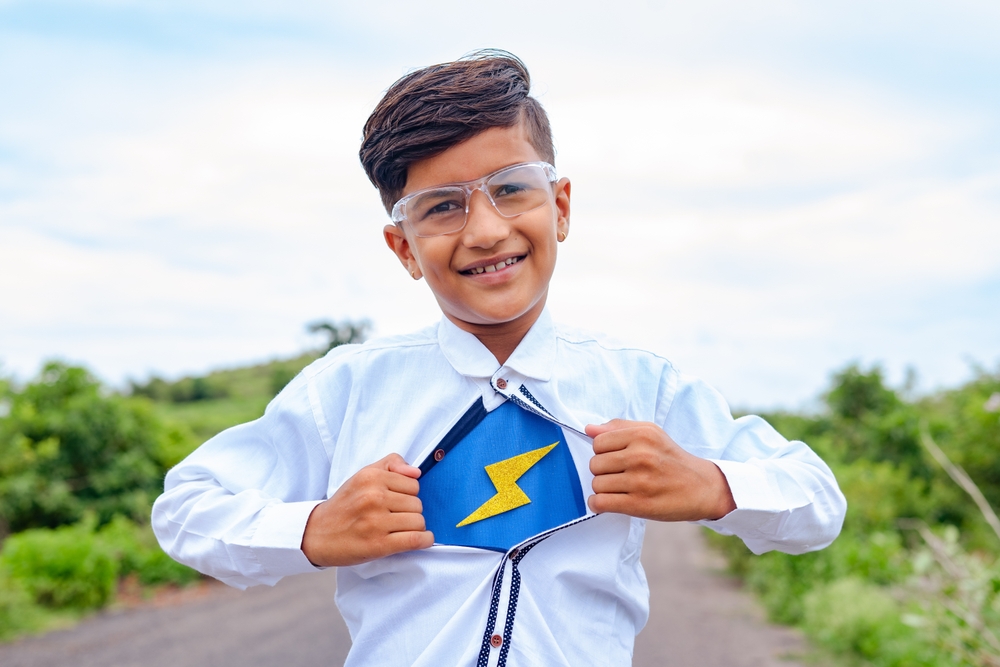
Naming Our Fears… And Finding Hope
October 8, 2024
Just in Time for the Holidays…
December 25, 2024So Your Child is Neurodiverse… 5 Ways to Help Them Find Their Superpowers
By Carol S. Siege, PCC
Founder, Family Pathways Coaching, LLC
One afternoon years ago, at the end of the school day, my oldest son came bounding in through our mudroom door, exhilarated with important news from his fourth-grade class. “Mom!” he called out, “I have ADHD!” Yup, you certainly do, but fill me in please…
The classroom lesson had been about recognizing people’s differences, and one difference, the students learned, was ADHD – today among the most common forms of neurodiversity. My son had been diagnosed several years earlier, and we had been treating him with medication and behavioral therapy. He knew he took “focus” medicine, but we had never labeled the diagnosis for him. In class he learned that his excess energy, difficulty staying focused on areas of lesser interest, and impulsivity all had a name – Attention Deficit Hyperactivity Disorder. But instead of being ashamed, he was proud. He had figured himself out, finally understood why he was different.
The way we address our children, their neurodiversity, and their challenges can influence how they see themselves. Their differences do not mean they are broken. In fact, sometimes these differences can serve as our children’s superpowers. For example:
- ADHD kids are high energy, passionate and have the ability to hyperfocus, that is, spend uninterrupted time deeply engaged in whatever topics and hobbies they find most enthralling.
- Those on the autism spectrum are known for their attention to detail, strong memory, and openness to new and different ideas. They tend to be logical thinkers who excel at pattern recognition.
- While feelings of anxiety can be distressing, they also serve a purpose, keeping our kids vigilant and prepared for the future. Anxious children are sensitive to the world around them and show compassion towards others.
- Dyslexia, dysgraphia, dyscalculia and other learning disabilities can produce strong visual capabilities. As noted in “The Dyslexic Advantage” by Dr. Brock Eide and Dr. Fernette Eide, LD thinkers develop “creative, problem-solving ideas that differ from the general population because of the ability to see the whole.”
- All types of neurodiverse personalities benefit from strong concentration skills, determination, willpower, resilience, empathy, and problem-solving skills.

Yes, neurodiversity creates challenges for our children and our families. Our kids struggle in the classroom and on the playground. Our homes can be chaotic and even divisive. Parents worry about the present and the future. And yet, as parents and caregivers, it is important to know that our children are not the problem.
I’ll say that again: Our children are not the problem.
Neurodiversity means experiencing the world differently, and yes, these differences cause challenges. While problems need to be confronted, “neurological differences like autism and ADHD are the result of normal, natural variation in the human genome,” according to John Elder Robison, a scholar in residence and a co-chair of the Neurodiversity Working Group at the College of William & Mary. And as it turns out, there are an awful lot of families who fall under the neurodiversity umbrella. According to the CDC, 11.3 percent of children ages 5–17 years have been diagnosed with ADHD; approximately 2.8 percent of children have been identified with ASD; and about 16.7 percent of children have a developmental disability.
Neurodiversity leads to creative thinkers and empathic humans. Our neurodiverse children develop tenacity and the courage to offer new ways of thinking. And they need our support to offer these gifts to the world at the same time they need our help to overcome the challenges that present themselves.



